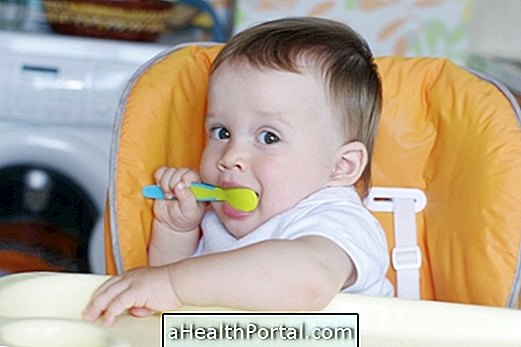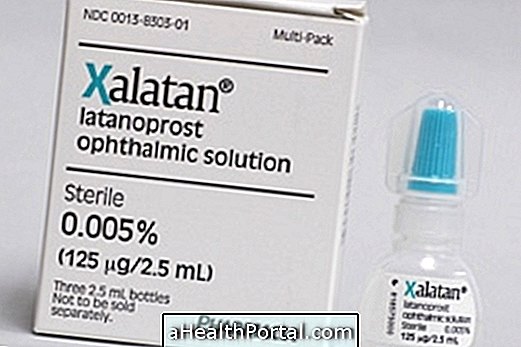Premature infants begin their feeding in the hospital, which can be given by the vein, catheter or directly from the mother's womb, depending on their state of health. Premature infants do not yet have a mature gut, and many are unable to suckle because they still do not know how to suck and swallow, so it is necessary to start feeding through the vein or catheter. The premature baby can be fed with breast milk or with special infant formula for premature babies.
How is the feeding in the hospital?
In the hospital, premature feeding is sometimes initiated through nourishing serum that is put into the vein. These sera will help baby to recover, and when he is better will feed by tube. The tube is a small tube that is placed in the baby's mouth and goes to the stomach, and may also be the first feeding option for premature babies, depending on their state of health. This probe is placed because many premature infants still do not know how to suck and swallow, which makes it impossible to feed directly into the mother's breast.
Through the probe can be given special milk formulas for premature or breast milk itself, if there is milk in the maternity. The milk bank is a place where the mother will be instructed to take her milk, which will be given to the baby by the tube every 2 or 3 hours.
When the premature baby will be able to nurse
The premature baby will be able to suckle when his general state of health improves and he can suck and swallow the breast milk. In this transition phase, it may be necessary to use a technique called translactation, through which the baby is placed to nurse with the tube, to learn how to pick up the breast and suck the breast milk. Breastfeeding should be done every 2 or 3 hours, according to the baby's need.
Even if the baby does not breastfeed, after delivery the mother should stimulate the breast to lower the milk, by means of circular movements that must be done on the edges of the areola every 3 hours, and then pressing the areola to take the milk. In the beginning, it is normal for only a few drops or a few milliliters of milk to come out, but this is the amount the baby can ingest because his stomach is still too small. As the baby grows, the production of breast milk also increases, so the mother does not have to worry or think she has too little milk.


Care during breastfeeding
The premature baby should be breastfed every 2 to 3 hours, but you should watch for signs of hunger such as sucking your fingers or twisting your mouth because the baby may want to suckle before the time. Even if the baby is asleep or does not show signs of starvation, it should be awakened to suckle at the latest 3 hours after the last feeding.
At first it will be difficult to breastfeed the premature baby because it does not suck as well as other babies, but generally after 34 weeks the feeding process becomes easier. In addition, prior to hospital discharge, doctors and nurses will advise on meal intervals and techniques to facilitate breastfeeding.
In cases where the baby takes infant formulas, one should buy milk suitable for premature infants or another type of special infant formula, as indicated by the pediatrician. The meal interval should also be 2 to 3 hours, and the hunger signs are the same.
Warning Signs
The main warning signs that the premature baby should be taken to the doctor are:
- The baby stops breathing for a few seconds;
- Frequent choking;
- Mouth purplish;
- Look tired and perspiring while nursing.
It is normal for premature baby breathing to be noisier, and saline should be placed only when the baby's nose is clogged.
When the premature baby can eat baby food
The premature baby can only start eating baby food and other solid foods when the pediatrician evaluates his development and is sure that he is able to tolerate new foods. Usually the introduction of new foods only occurs after the fourth month of age corrected when the baby can already lift the neck and sit. The premature at the beginning may reject food, but parents should insist gradually, without forcing. The ideal is to start the new diet with fruit juices and potatoes.
It is important to remember that introducing new foods ahead of time can cause allergies in the baby, and all children under 1 year should not take cow's milk, even those that are not premature. See more care for premature babies in: everything you need to know to care for the premature baby.





















